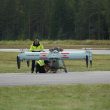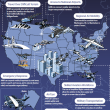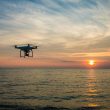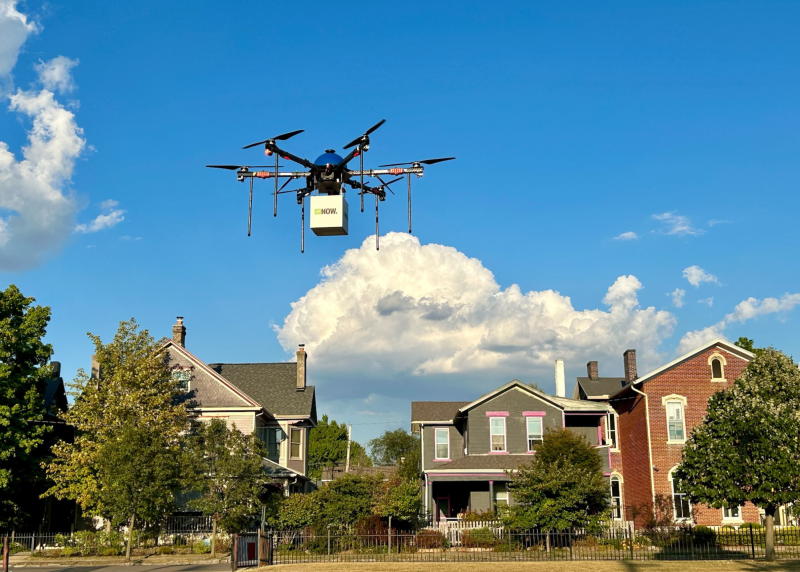In just three years, DEXA (also known as Drone Express) has outpaced their counterparts in Advanced Air Mobility and Uncrewed Aerial Systems. Where their competitors see challenges, DEXA sees opportunities and that is thanks to the leadership of founder, Beth Flippo, and her lean team.
Flippo, a native New Yorker who studied computer science at Binghamton University, is an embedded software developer who “accidentally” became an engineer. When given the choice in high school to take creative writing or programming, she initially chose creative writing. After some encouragement from a teacher, Flippo, who excelled at math, enrolled in the programming class, and was the sole female. For Flippo, taking this course changed the trajectory of her studies and career path.
Flippo has spent much of her professional life in the drone and engineering space – building operating systems for mobile platforms and working with her family to develop wire mesh networks that allow UAVs to constantly communicate with one another. The success that came with this groundbreaking innovation helped to lay the foundation for DEXA by prompting Flippo to begin targeting retailers for drone delivery operations. While DEXA does build their own UAVs, they also have a substantial focus on their software development. Flippo’s goal is to “build smarter aircraft,” that integrates AI for faster decision-making and safer flights.
DEXA currently has partnerships with the likes of Microsoft, Kroger and Papa John’s, and recently celebrated an immense company milestone: the grand opening of their new testing site in Winston-Salem, NC.
While Flippo’s passion and commitment for Drone Express leaves little time for some of her favorite things, like programming and drone flying, she is usually “the first one out” to watch her team fly when they’re local as it helps her remember why she was drawn to this business. Despite the demands that come with being a female founder and CEO, Flippo prioritizes holding the door open and creating opportunities for women and girls in science, engineering and entrepreneurship.
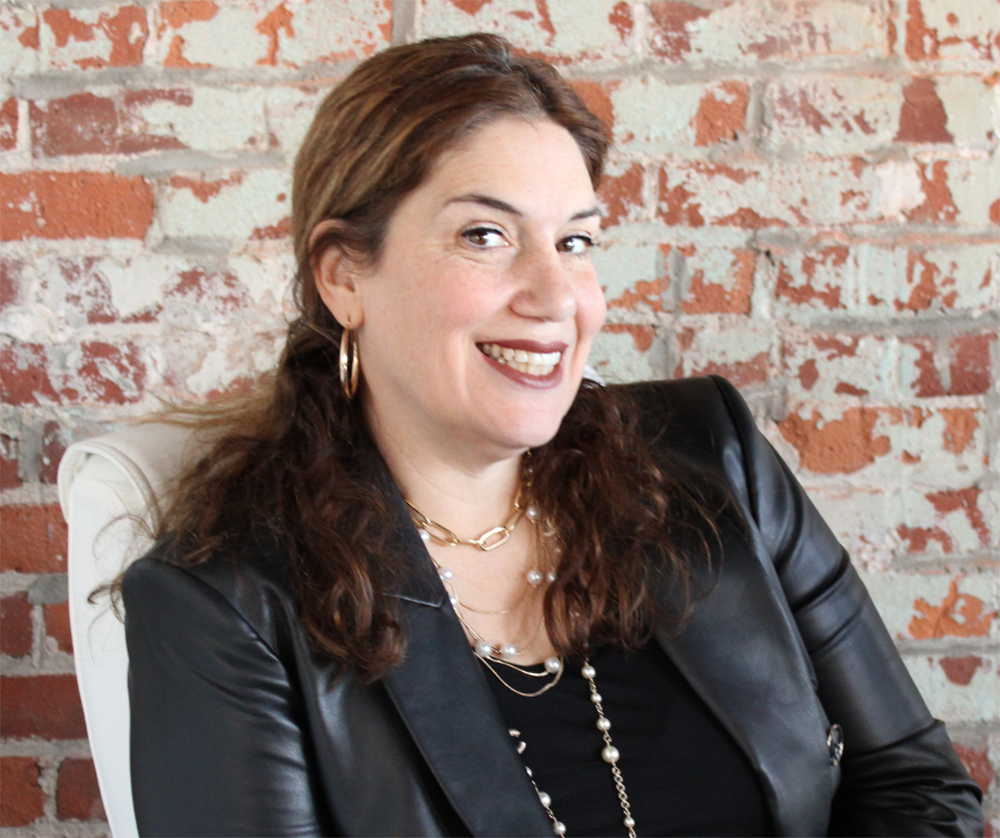
Jade Newton: There is no shortage of drone companies; many of whom have been around significantly longer than Drone Express. What makes Drone Express unique in a way that you are essentially outpacing your competitors?
Beth Flippo: The big thing for us [is that] we started right out of the gate going to the FAA. And I think that helped us, because a lot of drone companies, at that time, were still afraid of the FAA; they didn’t want to, you know, bring attention to themselves. We just went right up to them and said, ‘We don’t know how to do all this. You’re going to have to help us.’ And we’ve been part of the type Certification Program, which is an airworthiness certificate; it’s the same certificate that Boeing gets on a 777. We’ve been in that program since 2019 and, I mean, the FAA tore our drone apart, rebuilt it the way an airplane should be built, down to the part numbering. With us, it’s all, mostly, American made; but, like screws and things that everybody else buys on Amazon, we have to buy them through a company where you can trace it all the way back to where it came from. If that company says, ‘Hey, this lot that you bought from us has a problem in the metal that that was made,’ we know every single aircraft that used that screw from that lot. That’s the level of detail that goes into aviation.
JN: It sounds like there is a lot of structure with how you are building your drones. You know where everything comes from; you aren’t taking shortcuts. So many folks within organizations look at the FAA as ‘the Fun Police’ with all of the regulations.
BF: So, I [don’t] view regulations as a negative. The FAA says ‘These regulations are written in blood.’ They’re written based on accidents that have happened. You’re learning, from 100 years of people flying aircraft, what works and what doesn’t. I’ve always viewed it as such a positive: tell us what to do, tell us where you’ve seen a problem, and those regulations are there. That’s why air travel is the safest form of travel in the world. There’s nothing that comes close to the record of air travel. So yeah, if there’s a group telling me, ‘Here’s your path, here’s how to do this,’ it’s done for a reason, because any piece of a plane that comes off, they can identify what plane it came from; you know where it was on that plane. There’s nothing like that, not with cars, not with anything. The regulations that the FAA has have done tremendous work making all of this safe. They’re not going to allow drones to come in and ruin the safety record that they already have and, God forbid, fly a drone into a manned aircraft. I encourage anybody that’s in the drone space to not be scared of the FAA; work with them and learn from them. They’re not there just to make it difficult, they’re there to keep us all safe.
JN: There is a Drone Express app, in which customers can order products from for delivery by a DEXA drone. Can you walk me through a standard Drone Express workflow?
BF: So, we have phases that we’re going to get to. The first phase is where the drones will be at a central hub and as the orders are placed, our app is like Instacart; you’re ordering on our app, but you’re really ordering from a retailer that’s on the app. We then piggyback off the buy online, pick up in store, where the store packs the order for us, we go to the store, pick it up, and bring it back to our central facility. That is just something that we have to do temporarily while we’re starting this. The next goal is to get to these boxes, which are kind of like a FedEx or UPS [shipping container] box, that are just going to sit in the parking lot of one of these stores. The person [at the store] is going to pack it in the box for us and once they’ve already said they’re walking out of the store on the app, our drone takes off and is essentially hovering while they’re putting the box [on]. The winch comes down, picks it up, raises it up, and the drone flies off;
Phase three is where the drones are on the rooftops of all of these buildings and we’ll be able to not even have anybody involved other than what’s essentially an air traffic controller; our pilots will be located remotely. They’ll be watching a screen and be able to identify drones that might be having an issue, or if there’s a manned aircraft that’s flying into the area. That’s really all you’re going to need. Drone delivery is inexpensive because it uses electricity; it’s going to change the way we shop and it’s going to change the way we live. We’re going to be able to order throughout the day, and there’s really nothing like it. So, we’re excited to help local commerce, because essentially you’re supporting local commerce, and [we] use them as our distribution network. People can really experience what we call the autonomy economy – which is a totally new labor market that’s going to get created.
JN: As I was reading previous interviews that you’ve done, you talked about food deserts – which we know are far too common in lower income communities. And it sounds like there is a social impact piece to the work being done at Drone Express – sustainability, supporting local businesses and food access for people in food deserts or those who can’t leave their home for various reasons.
BF: Well, right. And, it’s not just people who can’t leave their homes: it could be single mothers that are home. I know how hard it is to drag my sick kid to a CVS when I need medication for them. Delivery is becoming so expensive and we can’t let it become something that’s only for the top because this is something that people – all of us – need. There hasn’t been something like since the iPhone; where it’s something that’s useful for every single segment of the population. And we’re trying to make sure that we reach those areas that need it. Our office is in downtown Dayton, so it is a food desert here. It’s really unfortunate because the people that live here are trying to revitalize this area and they can’t get fresh vegetables. How do people build more if they can’t even buy fresh food? So, we will be able to come from a supermarket that’s five miles away and get them everything that they need, so that these communities can start to thrive again, and that’s where our heart really is at. I always use the example that, you know, I’m a New Yorker, and the Thanksgiving Day Parade is sponsored by Macy’s. You know, these stores, these local stores, are the ones that give back to the community. They’re the ones that give to the local schools and support, you know, local activities. And when you go online, the communities get nothing. So, it’s unfortunate, and it hasn’t always been this way. People don’t realize that, like online ordering is relatively new online; before that you knew your grocer and your butcher, and we need that nostalgia and that life back.
Even supermarkets are relatively new. In the 70s and before that, people weren’t stocking up on a Sunday, they were going for what they needed throughout the week. And when you live like that, when you buy everything on a Sunday, people, like me, throw a lot away on Thursday. I say, “My vegetable drawer is the drawer of good intention,” and it shouldn’t be like that. It should be that we order what we need, because it’s not just the waste – the packaging is horrible now and that gets wasted, too. You buy a [poor quality] toaster that is going to die in three months and that goes into a landfill; that doesn’t just disappear. All of these things are compounding this impact on our society and how we live. So, we’re hoping to change that. That’s really a goal of ours – to bring a little bit back to the way it used to be. Where you actually know the cut of meat that you’re getting and you’re excited to go to the cheese store. You know what you’re buying and you shouldn’t have to just buy whatever or whatever is quickest to you.
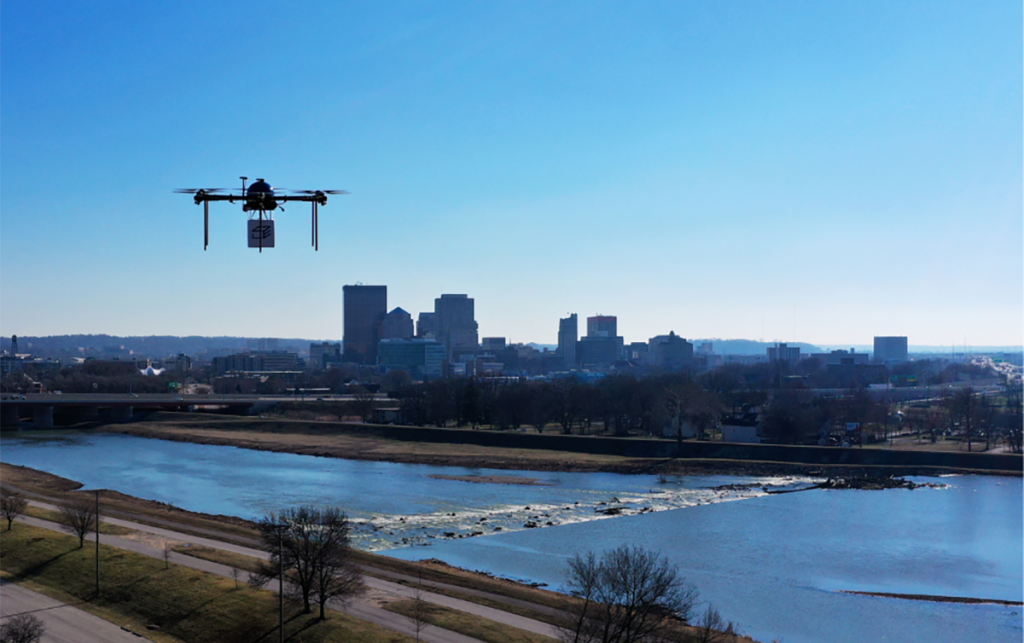
JN: You don’t get to a place where you’re at – a successful female founder, entrepreneur and CEO – without being strategic and taking risks. At the same time, being a woman in the aviation industry – actually, in any industry – how do you quell those thoughts that come with Imposter Syndrome, if you have them?
BF: I mean, we all do; we all have those thoughts. Am I faking it till I make it, you know? But for me, every time I’ve built up in my head about people, ‘Oh, my goodness, he is so much smarter than me. He’s going to be so great,’ I tend to get let down. And I feel like that helps me feel a lot better about myself because there isn’t a perfect person out there. The more you think you’ve just met the perfect person for whatever you need them to do [you realize] it’s you. But, yeah, we all wonder, you know, ‘Am I the right person for this? Am I the best to lead this team?’ And you just have to choke it down; you really have to not let those thoughts creep in.
My father always said, ‘You just grew up having a “Why not me?” attitude. And it didn’t matter if you were going after Kroger, if you were going after a small place, a big place – you always said, “Why not me? Why can’t it be me that brings in this big fish?”’ And I wish more people had that because. They say, ‘You miss 100% of the shots you don’t take,’ and most of them you don’t take because you are already telling yourself you’re not going to make it; it’s so unfortunate. I see people do it all the time, ‘Oh, I can’t go after that client; they’re way too big. They’ve probably got a marketing agency that does that, or they’ve already got this.’ You almost talk yourself out of even trying before you get there. So I try to just think, ‘It could be me. Why couldn’t it be me?’ And, just keep focused on that.
JN: You have a ‘tiny but mighty’ team and you’re a startup. It’s no secret that in startup environments, everybody wears multiple hats, regardless of what their job title says. It’s also no secret that startups have a number of challenges simply because it’s a startup. Whether you are trying to scale, complete a sprint or figure out the product roadmap – everyday isn’t going to be a great day. How do you keep your team motivated, especially on those not-so-great days?
BF: For me, respect and trust are a big part of what goes into running this team. I’ve never created walls, and I mean, down to the pilot on the ground – I include him. There’s so much discussion about how the company is going and what partners were partnering with. There’s no difference between everybody and we try to include everybody in the growth, the ups and the downs. I think it’s almost worse if you only tell people the highs because then when the lows happen, they’re totally shocked. We don’t hide anything and we all are trying to do the same thing together to make this happen; and that’s really unique.We don’t have any of that, ‘this is my role and that’s your role.’ We’re all just kind of blending into this one big wave that’s moving forward. That’s the best way to describe these guys. Our biggest thing is, you have to be open and transparent with the good and the bad.
JN: With the opening of the new testing site in Winston-Salem, what is next on the roadmap for Drone Express?
BF: We are going to see how good it is in this location. We are going to start getting our subscribers and our feedback, and seeing what people like or don’t like about the app. And then, rolling out to all these different cities. That’s the goal, but we are going to try to own this one city first and really do a great job before we expand. We just want to make sure that we do a great job in the one place that we’re in. Then, expand and keep adding more retailers and goods to our site, and helping support that community.


